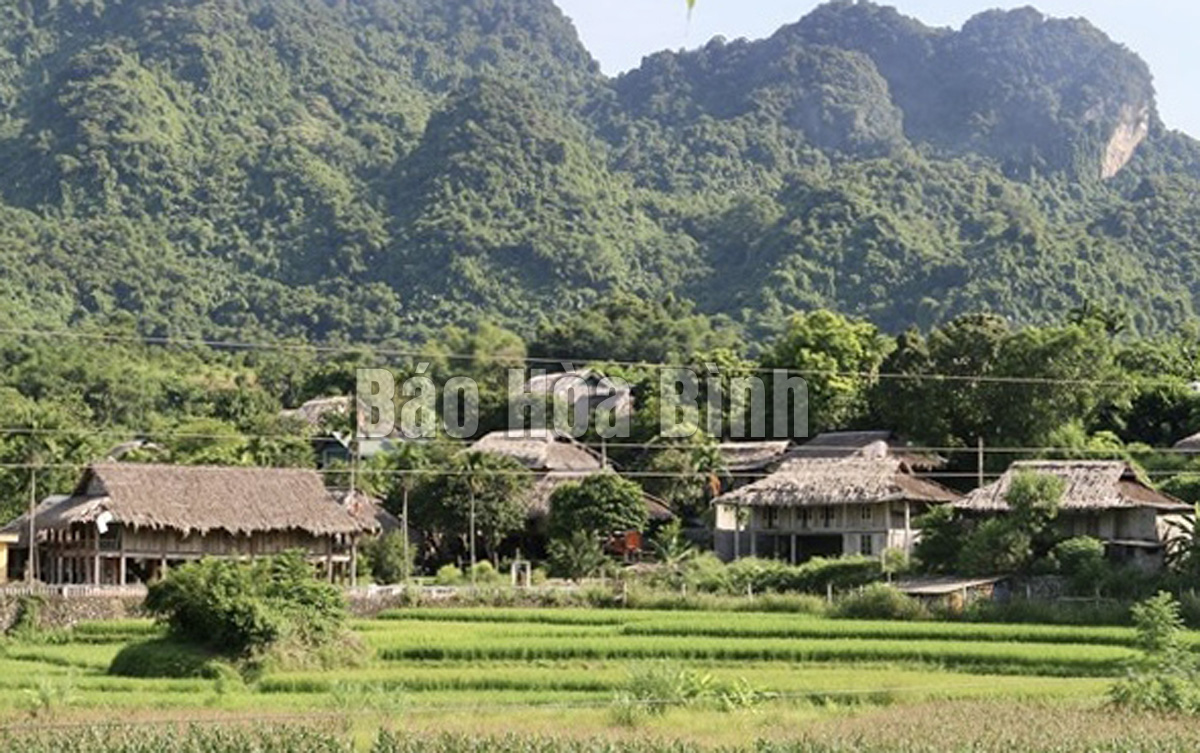
(HBO) – As part of the four well-known Muong regions, ethnic people in Cao Phong district take pride in their Muong Thang cultural identity.

A community-based tourism
site in Mo village, Binh Thanh commune (Cao Phong district) attracts visitors
with traditional cultural values.
Ancient Muong stilt houses in Mo
village of Binh Thanh commune hold an appeal to tourists, especially
foreigners. The destination promises enjoyable experience in the life of local
people, traditional customs, festivals and production activities. Ancient
architectural traits remain intact in stilt houses located in Thach Yen, Hop
Phong, Tien and Thung Nai communes.
Muong Thang hosts various annual
traditional festivals, namely a festival to open Bo shrine in Thung Nai commune
and one in Khanh pagoda in Thach Yen commune. Of note, it has revived the Khai
mua (season start) Muong Thang festival in Dung Phong commune since 2018.
At some points in the past,
traditional cultural traits faced the risk of falling into oblivion. Local
officials and people over the years have made efforts in cultural conservation
and development. The district has conserved about 1,600 Muong gongs, including
400 ancient ones.
Via communication activities, all
residents have now engaged in cultural conservation work. The district opened
classes teaching Muong folk songs and gong performance for the youths. The Mo
Muong Thang club was recently launched with the participation of 35 artisans
and people who love of the art.
Pham Ngoc Nhat, head of the
culture-information office of the district, said cultural conservation and
development contribute to tourism development and promoting the image of
friendly Muong Thang people.
The district is actively calling
on people to maintain and uphold cultural characteristics in tandem with
tourism development in a bid to improve local living conditions, and offering
training on tourism and access to capital in building community-based tourism
development./.
Located just a 20-minute drive from Hoa Binh City, Ora Hill Farmstay & Glamping Hoa Binh is a captivating new destination nestled in Mo hamlet, Bình Thanh commune, Cao Phong district. Combining farming with leisure, this tranquil retreat is perfect for those seeking balance, joy, and an immersive experience in the expansive beauty of nature.
Muong Bi - Tan Lac is renowned as one of the four famous Muong regions in Hoa Binh province. Blessed by nature with a favourable climate and stunning landscapes, Tan Lac holds great advantages for tourism development. The local tourism industry has made remarkable strides in recent times thanks to the attention and support from the local authorities and sectors.
With its strategic location, well-developed transport network, and diverse soil and climatic conditions, Hoa Binh is emerging as a must-visit destination in Vietnam's northwestern tourism corridor. The province boasts numerous attractions, including the Kim Boi hot springs (Kim Boi district), the Dau Rong cave complex (Cao Phong), the Mai Chau valley (Mai Chau), and the iconic Hoa Binh hydropower plant.
The northern mountainous province of Hoa Binh has been listed among the 71 most beautiful places to visit worldwide by the prestigious US travel magazine Condé Nast Traveller.
Hoa Binh province’s rich natural and cultural resources position it as a prime location for developing community-based tourism (CBT). In recent years, support from central and provincial policies, as well as assistance from non-governmental organisations, have encouraged local ethnic minority and mountainous communities to actively engage in the sector.



